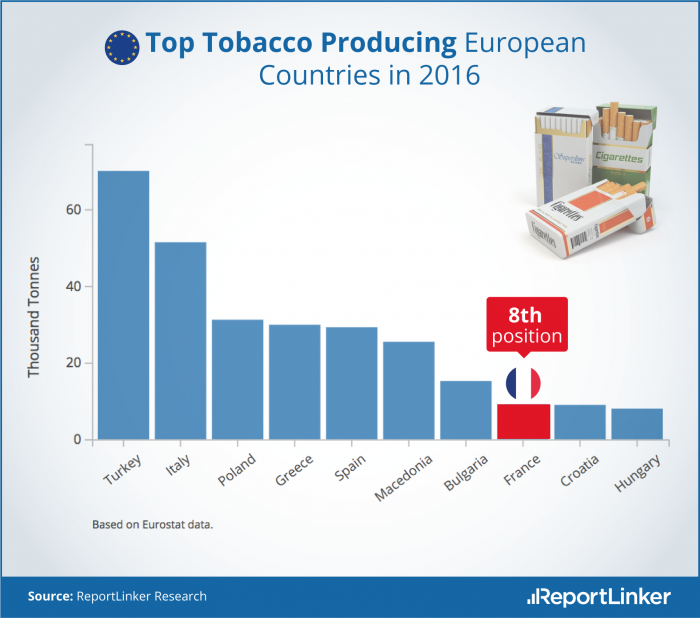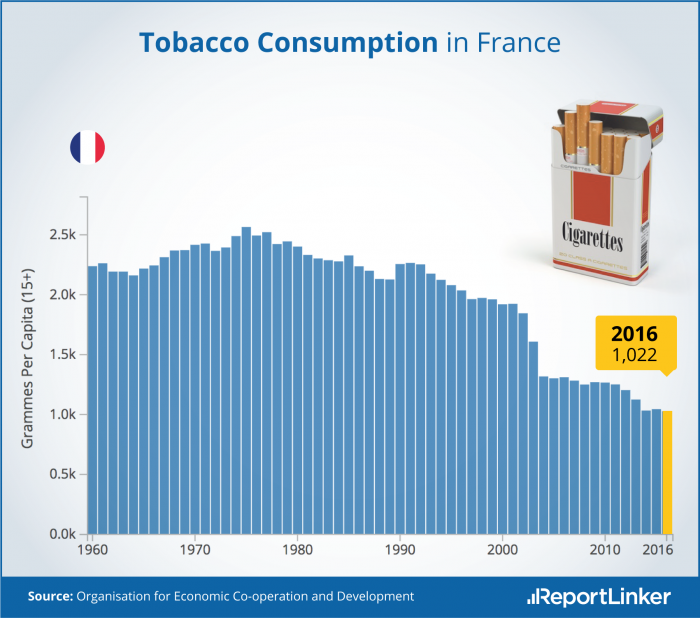The French have long had a reputation for being, as a general population, heavy smokers. The image of the Frenchman pontificating while holding a half-smoked cigarette stuck between his fingers is almost legendary. (French dames, too, are notorious for lighting up.) But, are the French truly still “Europe’s chimney”?
Speaking to The Local, Gerard Audereau, head of the French anti-smoking group “Droits des Non Fumeurs”, insists, “You can’t really say France is a country of smokers. That would be Greece, or countries in central Europe, [and] Spain and Portugal.”
It’s a possibility that policies enacted by French authorities have changed the French’s overall attitude about smoking. At least to a certain extent.
According to data unearthed by ReportLinker, the Harmonised Index of Consumer Prices (HICP) regarding cigarette purchases in France from September, 2016 to September, 2017 tells us something significant: the French government’s efforts to heavily tax cigarettes drove up the price per pack sharply. The French government’s objective is to drive up the price of a pack to €10 by 2020. Already by the end of 2017, the price increased by 30 cents over the beginning of that year. For instance, at the start of 2018 a pack of Marlboros now costs €7.30 instead of €7.
What’s more, as of 2016 France was only eighth on the list of the top European tobacco producing companies, trailing far behind Turkey and Italy.
Interestingly enough in light of those data, the famed French cigarette maker Gauloise was bought by Britain’s Imperial Tobacco in 2008.
Are those higher prices, induced by taxation, tending to lower French tobacco consumption? Perhaps.
From 1960 to 2016, the nation’s tobacco consumption per capita has decreased substantially (by at least 60%), especially since the beginning of the 21st century.
This downward trend in smoking is seen prominently in very young (age 15 to 24) French males and females alike.
The French government’s policy hasn’t been solely about taxes and regulations on tobacco. The government finances massive anti-smoking advertising campaigns too. Western nations have been aiming for decreases in smoking, especially in public places, since those tobacco-smoke-laden days and nights of the 1960s and 1970s.
And yet…according to Audereau, France could take bigger strides toward diminishing smoking habits. He says, “France is the [European] country that introduces the most restrictions on smokers, but does the least to enforce them.”
Presuming he’s right, why would French law enforcement agents often not enforce laws restricting smoking? One possibility is that many French smokers aren’t interested in quitting, and there are businesses that cater to them.
What’s unquestionably true (and possibly bolstering to Audereau’s perspective) is that the youth of France still tend to love nicotine. For instance, as of 2011, 29% of French teenagers were smoking, compared to 20% of those in the UK. Meanwhile, only 12% of German teenagers age 17 and younger were smoking, with 70% of them having never even tried smoking.
Perhaps the present day youth of France romanticise smoking cigarettes, as their grandfathers and grandmothers did before them. Time will tell if national anti-smoking policies make the French even more aware of tobacco’s threats to individual health.
Find a Home-Based Business to Start-Up >>> Hundreds of Business Listings.



















































